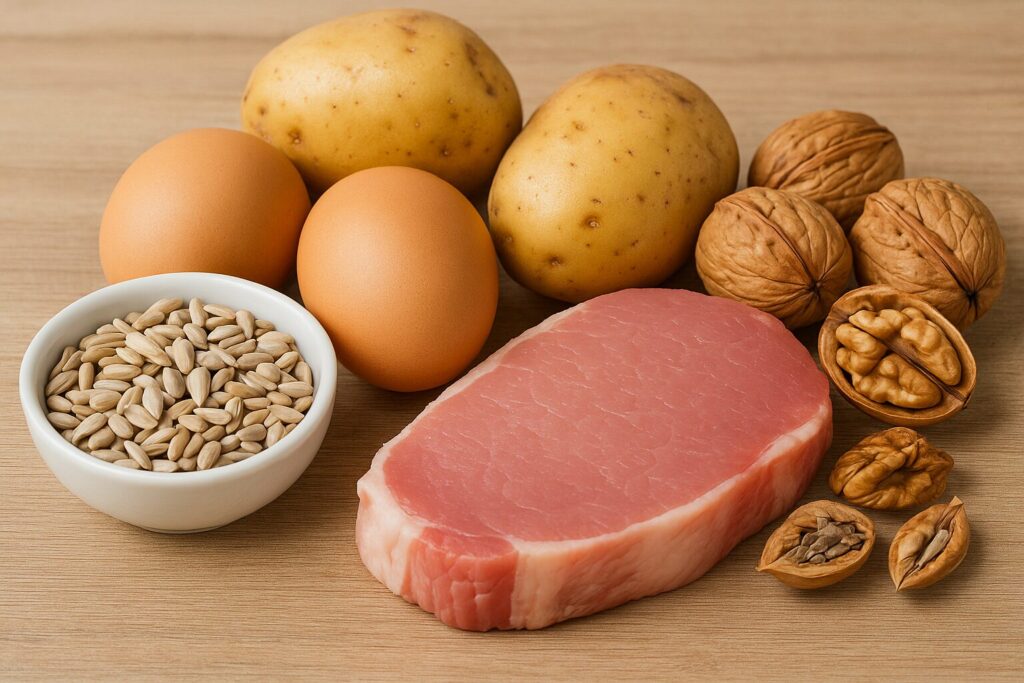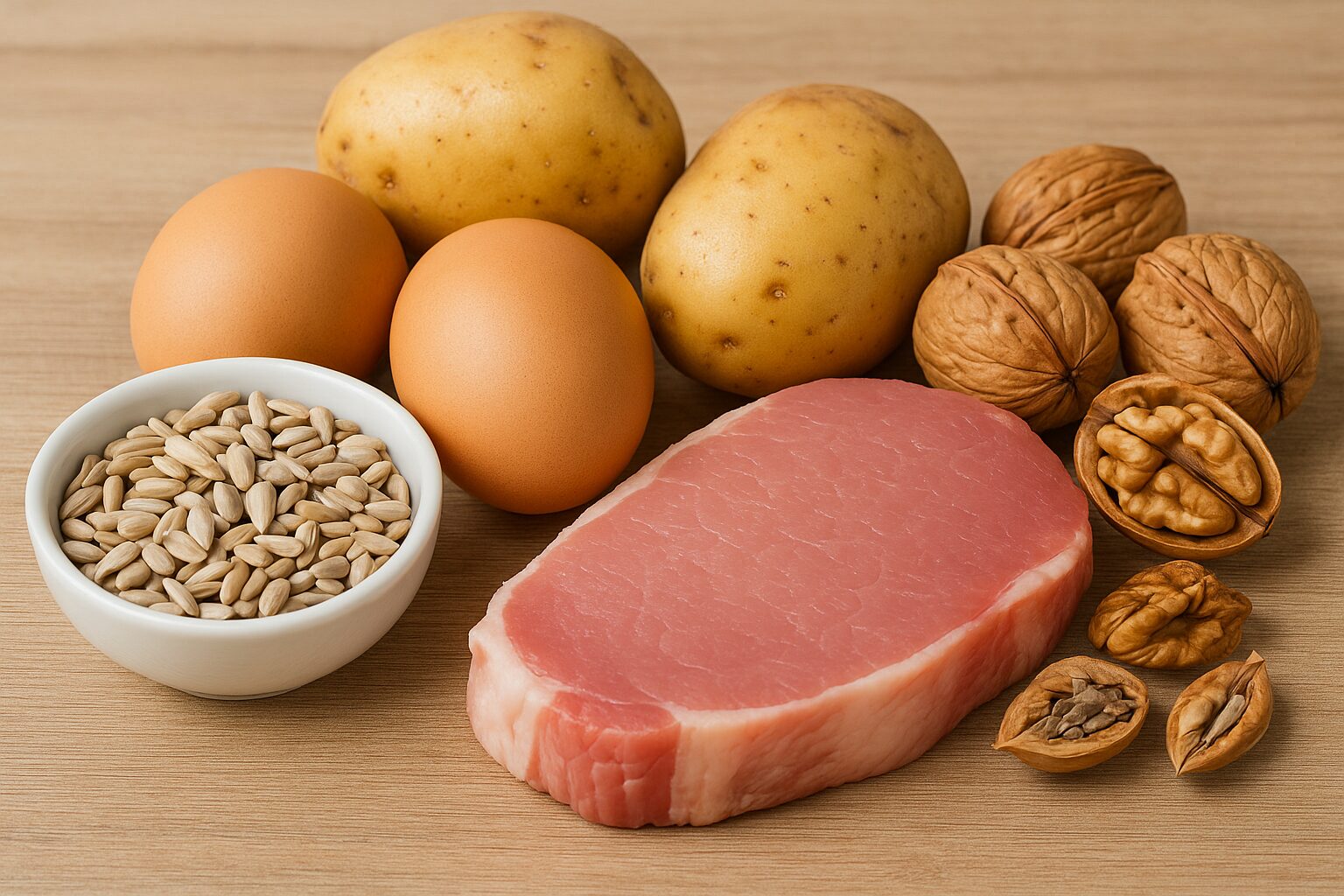Have you ever felt constant fatigue, tingling in your hands, or difficulty concentrating at work or school? These common symptoms may sometimes be related to vitamin B1 deficiency. Known as thiamine, vitamin B1 plays a crucial role in energy metabolism and maintaining a healthy nervous system. Instead of relying only on supplements, choosing the right foods can help ensure your body gets the B1 it needs. In this article, we’ll explore 10 of the best food sources rich in vitamin B1 and how they contribute to your health.

1. Pork
Pork is one of the richest natural sources of vitamin B1. A moderate portion of lean pork can cover a large part of your daily thiamine requirement. It also provides high-quality protein, making it a great choice for energy and muscle health.
2. Whole Grains
Brown rice, oats, and whole wheat bread are packed with vitamin B1 and fiber. Unlike refined grains, whole grains retain their nutrient-rich outer layer, making them a steady energy source for daily activities.
3. Legumes
Beans, lentils, and peas are affordable, plant-based sources of thiamine. They not only support energy metabolism but also provide protein and minerals important for balanced nutrition.
4. Seeds
Sunflower seeds and flaxseeds are small but nutrient-dense, delivering vitamin B1, healthy fats, and antioxidants. They make an easy snack or topping for salads and yogurt.
5. Nuts
Almonds, macadamia nuts, and pistachios are excellent sources of vitamin B1 while also supporting heart and brain health. A handful of nuts can be an easy daily habit to boost overall nutrition.
6. Fish
Fish such as tuna, trout, and salmon contain moderate amounts of vitamin B1, along with omega-3 fatty acids that protect the brain and heart. Including fish in your weekly meals adds variety and essential nutrients.
7. Eggs
Eggs are versatile and easy to cook. While their thiamine content is moderate, they complement other vitamin B1 sources and provide essential protein and fat for absorption.
8. Green Vegetables
Spinach, asparagus, and Brussels sprouts provide vitamin B1 along with antioxidants that support energy and nervous system health. Adding them to your meals can help balance nutrition naturally.
9. Milk and Dairy
Milk, yogurt, and cheese contain small but useful amounts of vitamin B1. When consumed regularly, they support energy metabolism while also promoting bone and gut health.
10. Fortified Foods
Some breads, cereals, and nutritional yeast are fortified with thiamine. These foods can be particularly helpful for individuals on vegetarian or vegan diets who may otherwise struggle to meet daily needs.
🙂
Vitamin B1 may not be as well-known as vitamin C or vitamin D, but it is essential for turning food into energy and supporting brain and nerve function. By choosing a variety of foods — from pork and fish to nuts, seeds, and whole grains — you can protect your energy levels and overall well-being. A food-first approach ensures you’re not only meeting your vitamin B1 needs but also receiving other nutrients that work together for long-term health.
Sources
– National Institutes of Health (NIH): Vitamin B1 Fact Sheet
– World Health Organization (WHO): Micronutrients and Health
– American Journal of Clinical Nutrition: Thiamine in Energy Metabolism
Disclaimer
This article is for informational purposes only and does not replace professional medical advice. Individual nutritional needs may vary. For specific guidance, please consult a qualified healthcare professional.
